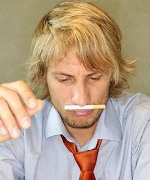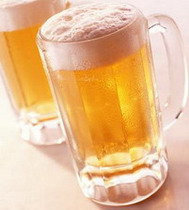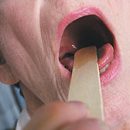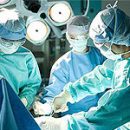Probably everyone heard the expression «Hormon happiness». What does it mean? As if proseciously did not sound, today scientifically proven that the feeling of happiness, euphoria and even love is only a complex chain of biochemical processes involving neurotransmitters
Content
In this article we will talk only about some of them. This is — Endorphine, dopamine and serotonin, as due to the use of alcohol and various types of drugs, there is decompensation of the exchange of these neurotransmitters and the body loses the ability (sometimes for many years) to fully function in the absence of artificial stimulation. This determines the development of the main manifestations of the abstineent syndrome: anxiety, tensions, psychotic states, sleep disorders, depression and pathological attraction to psychoactive substances. Simply put, it is the absence of a normal level in the body «Hormones of happiness» is the cause of long negative perception of patients with various forms of dependence of its sobriety. We often hear the following phrases from patients: «Without drinking life boring and gray…», «I don't want to live…», «Better die than living like that…», «Drugs saved me from SEROST and gave a sense of holiday». Unfortunately, such negative installations are formed by the disease itself and often lead to recurrence.
It is absolutely logical that this information should be taken into account in the preparation of modern programs for the rehabilitation of narcological patients, but in most cases it does not occur. It should be noted that in this article under the rehabilitation of patients with alcoholism and drug addiction means a combination of medical, psychological, pedagogical, legal and social measures aimed at restoring physical, psychological, spiritual health, the ability to function in society without psychoactive substances.*
And as a basis, such models of rehabilitation are taken, in which pharmacotherapy is used only at the initial stage of the recovery of patients, that is, in detoxification. Non-state rehabilitation centers are forced, in accordance with existing provisions, to do without medication correction of the emotional background of patients. The principle of complete refusal to use psychoactive drugs, changing consciousness, as, often, such a type of treatment can lead to the so-called change of the form of the dependence. Among the rehabilitation centers with such an installation, only units use the principle of complexity in which special attention is paid to the restoration of the deformed hormonal background and where to achieve this goal in the rehabilitation program, a set of measures aimed at activating the production of own neurotransmitters in the amount that is necessary for a full-fledged functioning.
No less significant in the rehabilitation of narcological patients, along with the complexity, are the principles of multidisciplinary, stages and long-term. To achieve sustainable remission, the patient must participate in the rehabilitation process (with different intensity at each stage, within the hospital and ambulance) at least one to two years. The first stage is carried out in a hospital, that is, in the system closed to penetrate the surfactant and the temptations of their use. The second stage is longer, its program is implemented under ambulance conditions. If necessary, when there is a clear threat of a recurrence of the disease or a broken breakdown, the patient is repeatedly sent to the hospital.
* Definition from the Decree of the President of the Russian Federation from 09.06.2010 No. 690 «On approval of the Strategy of State Anti-Narcotic Policy of the Russian Federation until 2020».
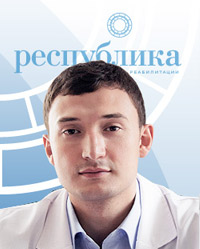 «Applying paradigm knowledge about the clinic, treatment and rehabilitation of narcological patients, the orders of the Ministry of Health and Social Development of the Russian Federation, the scientific developments of leading narcological institutions and the Department of our country, as well as the experience of foreign countries, we pay special attention to the aspect of the recovery of the hormonal background, — Says Adel Ildusovich Valeev, Director of the Center for Rehabilitation «Republic» — First of all, this is a balanced system in which sugar, harmful fats and preservatives are practically absent. The basis of the diet is seafood, the benefit of the center of rehabilitation is located on the seashore, dietary meat, vegetables and fruits. It is these products that are rich in vitamins B2, B6 and especially magnesium, which is involved in the production of serotonin, as well as tryptophan and L-finilanin, contributing to reinforced endorphin production.
«Applying paradigm knowledge about the clinic, treatment and rehabilitation of narcological patients, the orders of the Ministry of Health and Social Development of the Russian Federation, the scientific developments of leading narcological institutions and the Department of our country, as well as the experience of foreign countries, we pay special attention to the aspect of the recovery of the hormonal background, — Says Adel Ildusovich Valeev, Director of the Center for Rehabilitation «Republic» — First of all, this is a balanced system in which sugar, harmful fats and preservatives are practically absent. The basis of the diet is seafood, the benefit of the center of rehabilitation is located on the seashore, dietary meat, vegetables and fruits. It is these products that are rich in vitamins B2, B6 and especially magnesium, which is involved in the production of serotonin, as well as tryptophan and L-finilanin, contributing to reinforced endorphin production.
Physical activity, as is well known, also has a direct impact on enhanced endorphin production. Therefore, the rehabilitation process includes swimming classes (in summer during the sea and the outdoor pool, in winter — Trows in closed pools), classes with an instructor on simulators, daily sessions of wellness gymnastics, horseback riding, hiking in the mountains and delicate therapy sessions.
Respiratory meditations, therapeutic massage, aromatherapy sessions based on essential oils and phytotherapy contribute to the normalization of the level of serotonin and dopamine.
And of course, the location of the center is unique, since the subtropical climate and the number of sunny days a year prevails on the southern shore of the Crimea and the number of sunny days is 250–270, and, as you know, serotonin synthesis is due to sunlight»
As a result of all these integrated activities carried out on the observations of the Center specialists, there is a significant reduction in the period of adaptation to the therapeutic process, the motivation for maintaining a sober lifestyle and increases the share of sustainable remissions. To date, 75% of the course under the course of treatment remain sobriety. Thus, in most cases, with the exception of severe clinical disorders, it can be said that the use of the above comprehensive methods for the rehabilitation of narcological patients provides a positive result and can serve as an alternative to the use of psychopharmacotherapeutic agents (antidepressants, tranquilizers, etc.) in narcology at the stages of rehabilitation.
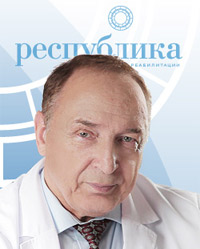 Dudko Taras Nikolaevich — Main Scientific Advisor of Rehabilitation Programs. Director of the Institute of Rehabilitation NSC Narcology of the Ministry of Health and Social Development of Russia, Doctor of Medical Sciences, Academician of Raen.
Dudko Taras Nikolaevich — Main Scientific Advisor of Rehabilitation Programs. Director of the Institute of Rehabilitation NSC Narcology of the Ministry of Health and Social Development of Russia, Doctor of Medical Sciences, Academician of Raen.
This article affects two important and interrelated problems. The first applies to the restoration of the hormonal background of patients deformed by a narcological disease. Not only the recommendations are given, but also shown, what technologies of this can be achieved without using psychopharmacotherapeutic psychological practices.
The second, considered in the article, concerns the methodology for using the main conceptual principles in rehabilitation programs. It is clear that without the introduction of the principles of multidisciplinary, stages and long-term, it is impossible to solve the problem of restoring the health of patients and including their hormone background. The recommended gradual transition from the stationary form of rehabilitation to the outpatientness with a mandatory focus on the program prolongation allows for prolonged and persistent remissions. Often, as many scientific studies show, the achievement of therapeutic remissions is the only right path to achieving the final effect — Changing the worldview of patients and refusal to use narcotic psychoactive substances throughout the subsequent life. It is to such a result that patients come with the passage of the total rehabilitation program in the center «Republic».



